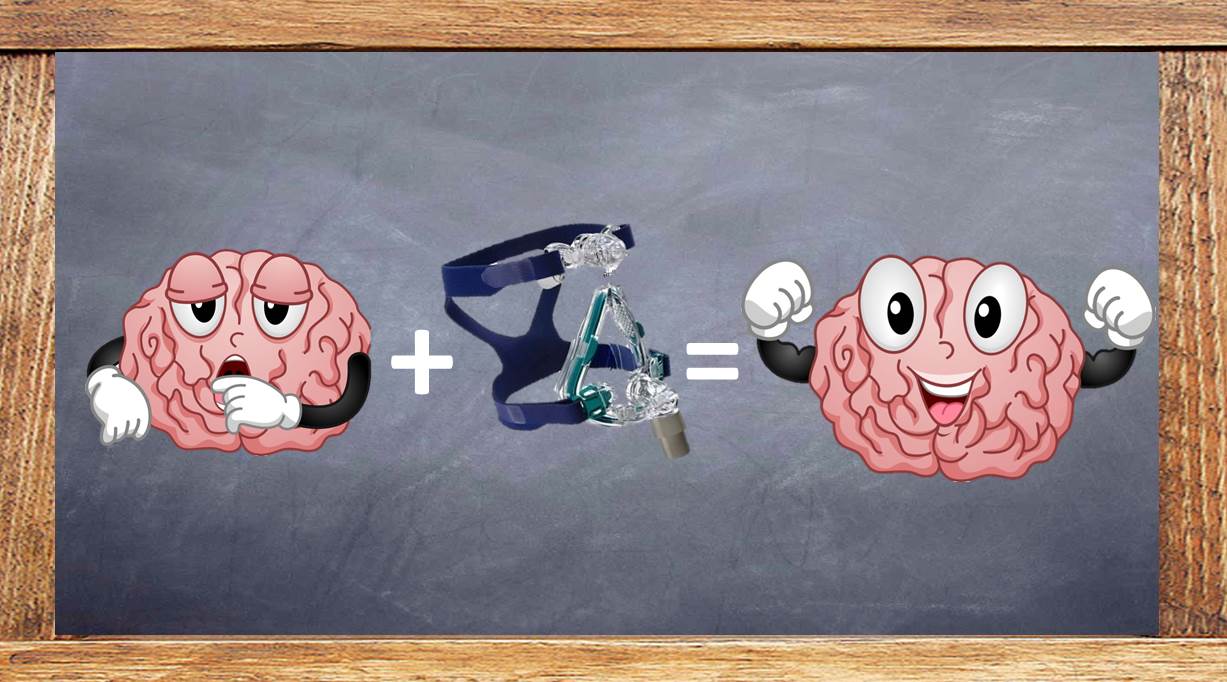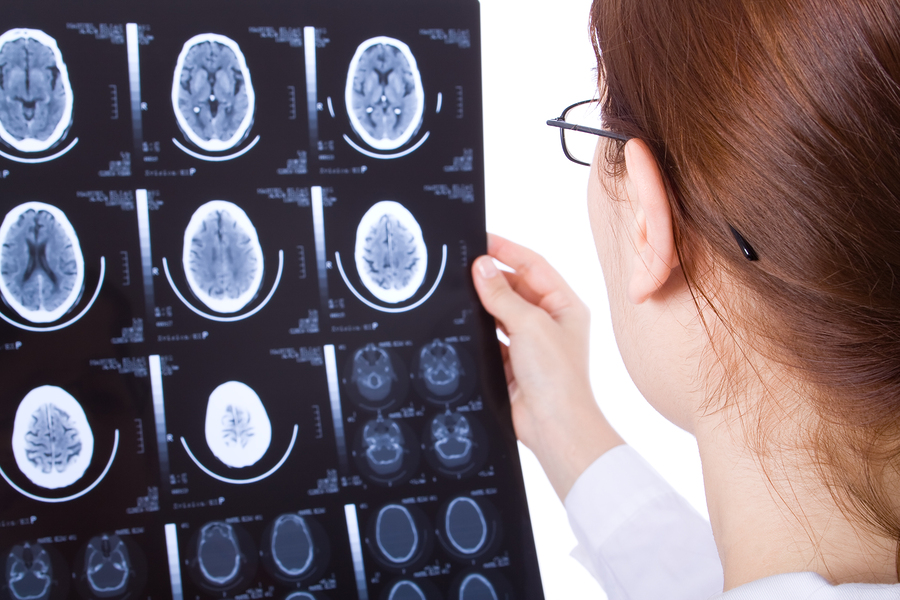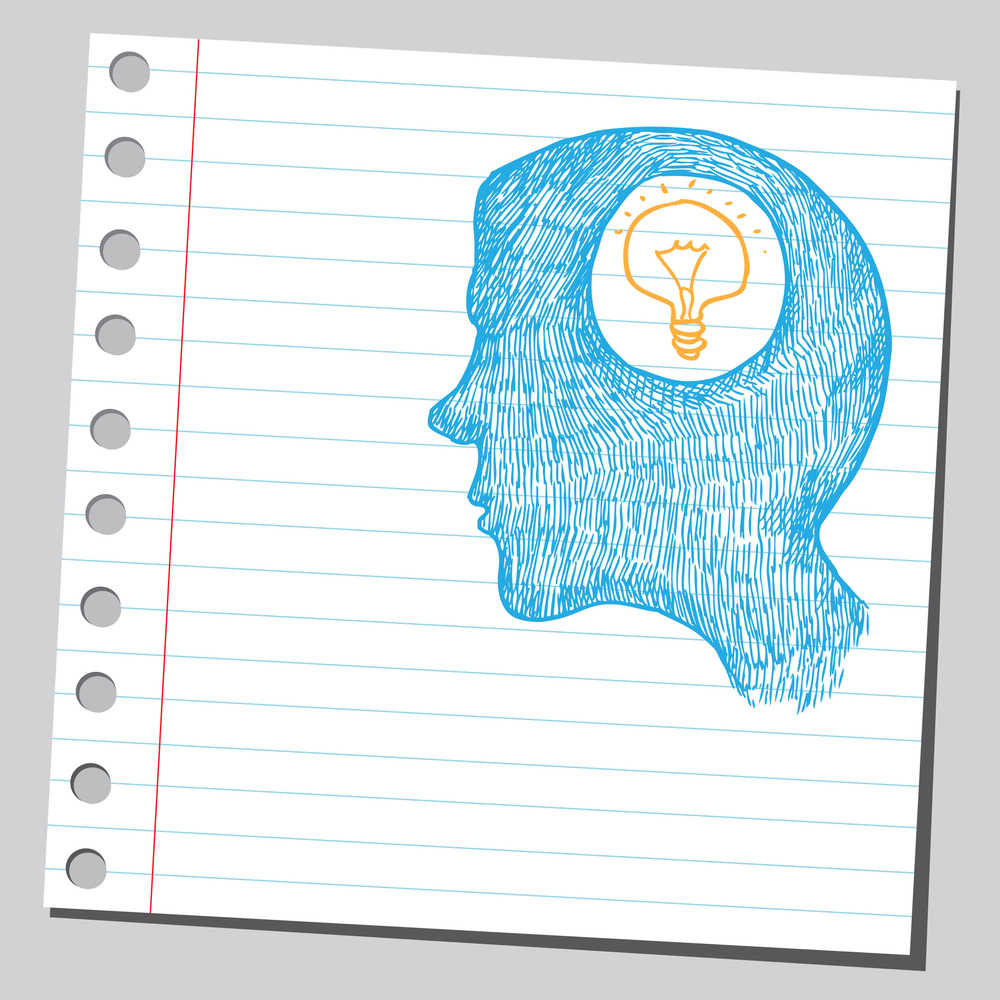
The brain is essential for everyday functioning and in many ways, it’s the most important organ in the body. However, if you have obstructive sleep apnea, some of your cognitive abilities might be taking a serious hit: every time you stop breathing in your sleep, less oxygen is travelling to your brain. Luckily, an enlightening recent study – the first of its kind – proves that CPAP, or continuous positive airway pressure, treatments can literally restore brain tissue to improve cognitive functioning. Think of your CPAP machine as a home gym for your brain.

After three months of CPAP treatments, patients showed remarkable improvements and increases in both volume and concentration of grey matter.
– Vincenza Castronovo, PhD
The study focused on three parts of the section of the brain that is commonly referred to as ‘grey matter’: the hippocampus, which is responsible for short-term memory; the posterior parietal cortex, which is responsible for basic, planned movements; and the superior frontal gyrus, a crucial part of the brain responsible for physical self-awareness. For sufferers of sleep apnea, each shortage of oxygen to the brain causes damage and physical reductions in these areas, making even simple things like remembering where you put your car keys more difficult. The good news is that this study proves CPAP therapy doesn’t just prevent more damage, it also increases grey-matter volume. The results of the study showed significant grey-matter volume increases after only three months of CPAP treatments.
What is so groundbreaking about this study is that it proves that CPAP treatment both improves cognitive functionality and also encourages growth of grey-matter. Conducted at the University Vita-Salute San Raffaele and San Raffaele Scientific Institute in Milan, Italy, the study included 17 patients with diagnosable sleep apnea and 15 healthy control patients. The test patients all suffered from severe obstructive sleep apnea. Upon induction into the study, these patients showed clearly definable cognitive deficiencies as a result of physical neurostructural damage to the grey-matter areas of the brain. In so many words, sleep apnea was causing slight brain damage.
In the study, patients underwent a series of brain imaging scans. The scans were made with 3 massive, state-of-the-art MRI machines and a newer brain imaging technique called voxel-based morphometry (VBM), which can determine slight variations in concentration and volume of grey-area matter. After three months of CPAP treatments, patients showed remarkable improvements and increases in both volume and concentration of grey matter – and based on other cognitive tests they showed improvement in short-term memory as well.

While the results of this study clearly illustrate that regular and dedicated night CPAP treatments can restore volume in the area of the brain responsible for basic information processing, it also begs another question: what about other parts of the brain – not just the grey-matter? An earlier study, which was conducted by researchers in South Korea and published in an issue of Sleep, points out that sleep apnea causes damage to other parts of the brain as well, like the cerebellum, all the way in the back of the brain, which is responsible for basic motor control like talking and walking. And yet another study, conducted in France, shows that sleep apnea affects the thalamus, which is responsible for consciousness, sleep, and alertness. What does all this mean for sufferers of sleep apnea? Basically, if you want to maintain healthy brain functions, stick to your CPAP treatments, because it turns out sleep apnea can wreak havoc on more parts of your brain than you know. So, let this article be a light bulb that goes off in your head – wear your CPAP!












